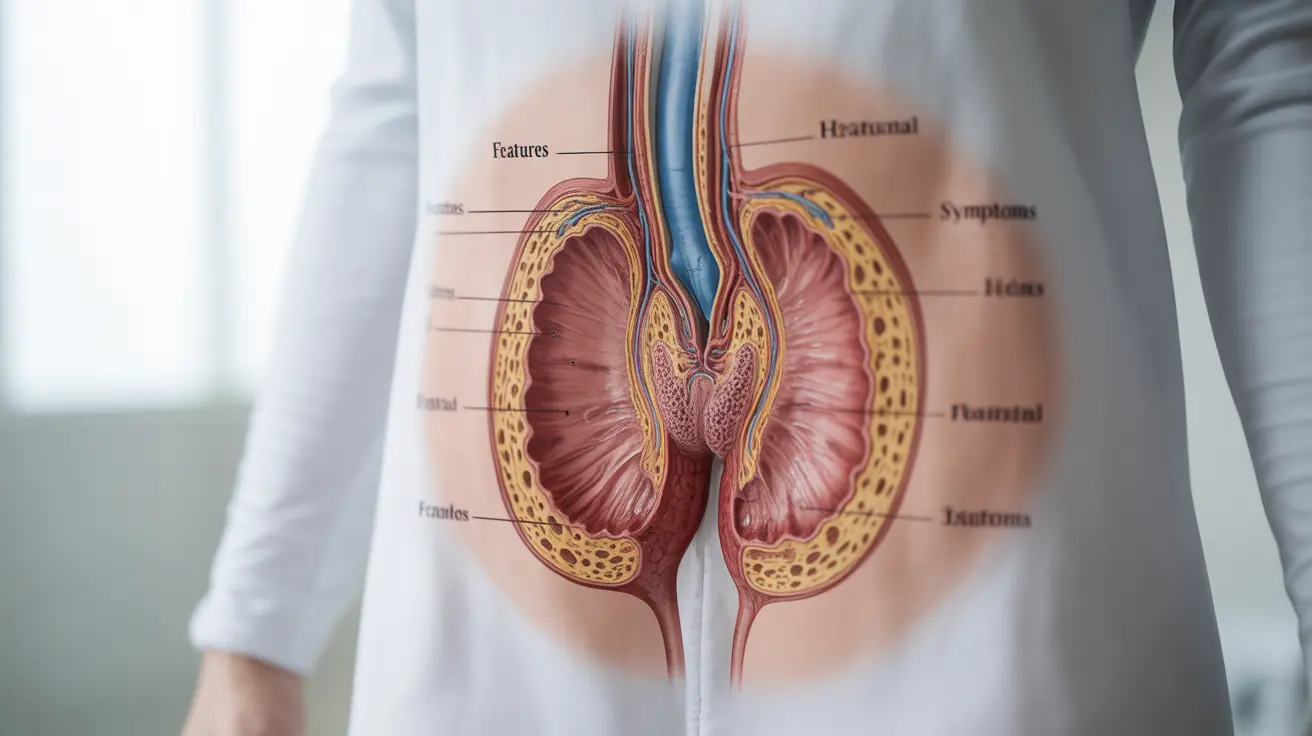If you're experiencing the discomfort of hemorrhoids, you might be wondering if popping them could provide quick relief. However, this common question requires careful consideration, as attempting to pop a hemorrhoid can lead to serious complications and worsen your condition.
In this comprehensive guide, we'll explore why popping hemorrhoids is dangerous, discuss the safer alternatives for relief, and help you understand when to seek medical attention.
Why You Should Never Pop a Hemorrhoid
Hemorrhoids are swollen blood vessels in and around the anal area, and attempting to pop them can cause severe complications. Unlike pimples or blisters, hemorrhoids contain sensitive vascular tissue that, when damaged, can lead to:
- Excessive bleeding
- Severe pain
- Increased risk of infection
- Delayed healing
- Potential anal fistulas
- Tissue damage
Understanding Hemorrhoid Types and Symptoms
Before considering any treatment, it's important to understand what type of hemorrhoid you're dealing with:
Internal Hemorrhoids
These occur inside the rectum and typically don't cause pain but may bleed during bowel movements. They're categorized into four grades based on severity and protrusion.
External Hemorrhoids
Located under the skin around the anus, these can be painful and may develop blood clots, causing severe discomfort and swelling.
Safe Treatment Options for Hemorrhoid Relief
Instead of attempting to pop hemorrhoids, consider these proven treatment methods:
At-Home Treatments
- Warm sitz baths
- Over-the-counter hemorrhoid creams
- Ice packs to reduce swelling
- High-fiber diet
- Increased water intake
- Gentle cleaning with unscented wipes
Medical Treatments
When home remedies aren't enough, your doctor may recommend:
- Rubber band ligation
- Infrared coagulation
- Sclerotherapy
- Surgical removal (hemorrhoidectomy)
When to Seek Medical Attention
Don't hesitate to consult a healthcare provider if you experience:
- Severe pain or discomfort
- Persistent bleeding
- Large or painful lumps
- Symptoms that don't improve with home treatment
- Signs of infection
Frequently Asked Questions
- Can I pop a hemorrhoid to relieve the pain, and what are the risks if I try?
No, you should never attempt to pop a hemorrhoid. Doing so can lead to severe complications including infection, increased pain, and delayed healing. The blood vessels in hemorrhoids are delicate, and damaging them can cause excessive bleeding and potential long-term problems.
- What are the signs of infection after a hemorrhoid has burst or been popped?
Signs of hemorrhoid infection include fever, increased pain, redness, swelling, pus discharge, and foul odor. If you experience any of these symptoms, seek immediate medical attention, as infections can become serious if left untreated.
- What are safe ways to treat hemorrhoids at home without causing more problems?
Safe home treatments include sitz baths, over-the-counter creams, ice packs, and increasing fiber intake. Keep the area clean, avoid straining during bowel movements, and stay hydrated. These methods can provide relief without risking complications.
- When should I see a doctor for a hemorrhoid that is bleeding or won't get better?
See a doctor if you experience persistent bleeding, severe pain, large or painful lumps, or if symptoms don't improve after a week of home treatment. Also seek medical attention if you're unsure whether your symptoms are caused by hemorrhoids.
- How can I tell if something near my anus is a hemorrhoid or a more serious condition?
While hemorrhoids typically cause painless bleeding and itching, other conditions may have similar symptoms. If you experience severe pain, changes in bowel habits, or unusual discharge, consult a healthcare provider for proper diagnosis, as these could indicate more serious conditions requiring different treatment.




